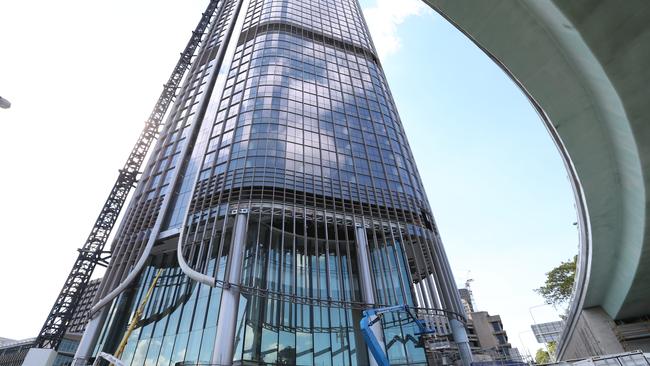Public servants could face up to 10 years in jail if they misuse confidential information under CCC recommendation
Public servants could face a new criminal penalty and the threat of up to 10 years in jail if they misuse confidential information, if the state’s corruption watchdog gets its way. And the worst-offending group of public servants have been revealed.

QLD News
Don't miss out on the headlines from QLD News. Followed categories will be added to My News.
PUBLIC servants should face a new criminal penalty and the threat of up to 10 years in jail if they misuse confidential information, the state’s corruption watchdog has urged.
Warning allegations of privacy breaches by public servants have soared by almost 50 per cent in the past three years, the Crime and Corruption Commission has called for better protection of sensitive information.
Crime and Corruption Commission laws slammed by Clerk of the Parliament, Neil Laurie
The findings are contained in a report from Operation Impala, which examined breaches of confidentiality by seven public sector agencies including Police, Health, Transport, Education and Corrective Services.
Alleged misuse of confidential information by state public servants rose from 713 in 2015-16 to 1060 last financial year, the report revealed.
In a sign of the extent of the problem, the allegations account for more than one in 10 of all corruption complaints received by the CCC last year.
The report warned there were examples of public servants accessing sensitive information such as Queenslanders’ addresses, medical records and police files for reasons ranging from curiosity to stalking or to use for their benefit.

The Queensland Police Service had by far the highest record of alleged breaches, but there has been a decline in complaints in recent years.
Corrective Services, Education, Health and Transport and Main Roads all recorded increases in privacy complaints in the past year.
While Queensland Health was found to have “quite a robust system in place for building the needed information privacy culture”, the report warned there were “backlogs of potential breaches” of digital medical records detected.
The agencies were chosen as representative and the study did not investigate all government bodies.
As part of a privacy overhaul proposed by the CCC, government IT systems would be toughened, access to files audited and public servants given better training.
The proposed new criminal penalty would see bureaucrats threatened with five years’ jail for accessing confidential information, with the punishment to rise to 10 years if the offender obtained a benefit, disclosed the information to someone else or used it to help commit a crime.
“Creating a new offence in the Criminal Code will leave public servants in no doubt as to the seriousness of accessing, or disclosing, confidential information without a lawful reason,” CCC chair Alan Macsporran said.
“If … adopted, it will mean these types of issues will no longer be viewed by public servants as minor indiscretions.”


